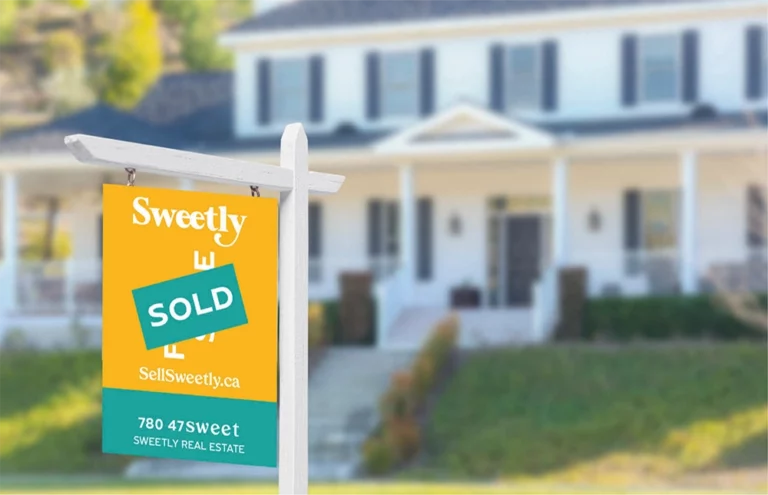When Should Senior Citizens Sell Their Home? Considerations, Tips, and More
As the golden years approach, many seniors find themselves faced with a multitude of important decisions, not least of which is the question of housing. For those who own their homes, the decision of whether or not to sell can be both complex and deeply personal. Factors such as financial stability, health, lifestyle needs, and emotional attachments all play a role in this significant choice. Whether it’s the allure of downsizing to a more manageable space, the desire to be closer to adult children, being able to help with grandchildren, or the need to free up financial resources, the reasons for selling a home in one’s later years are as varied as they are critical.
This article aims to guide seniors and their families through the multifaceted process of determining if selling is the right option. It explores the various factors that should be considered, the pros and cons of different living arrangements, and practical strategies for making a sale. By understanding these elements, seniors can make an informed and confident decision that best aligns with their needs, preferences, and future plans.
The Right Time to Sell Your Home as a Senior: Factors to Consider
Equity in the Home
One of the foremost financial considerations for seniors contemplating the sale of their home is the equity they have built up over the years. Equity refers to the value of the home minus any remaining mortgage or other debts secured by the property. For many seniors, this equity represents a significant portion of their net worth. Selling the home can unlock this value, providing a substantial financial resource. However, it’s essential to understand the precise amount of equity in the property, considering any outstanding mortgages, liens, or other encumbrances, as it will play a crucial role in determining the feasibility and attractiveness of selling.
Tip: Find the value of your home and explore our offer at Sweetly.
Current Market Conditions
The timing of a home sale can greatly impact the financial outcome, making current market conditions a vital consideration. If the housing market is strong and home values are rising, seniors might find it advantageous to sell and capitalize on higher prices. Conversely, selling during a downturn or a buyer’s market might result in a lower sale price, potentially diminishing the financial benefit. Working with a knowledgeable real estate agent who understands the local market can help seniors assess the optimal timing for a sale, balancing the desire for maximum proceeds with other factors like urgency or individual housing needs.
Potential Benefits of Investing the Proceeds
Selling a home often leads to a significant influx of funds, and what seniors choose to do with these proceeds can have a lasting impact on their financial well-being. For some, investing the funds in a diversified portfolio may provide ongoing income and potential for growth, aligning with long-term financial goals. Others may find value in more conservative investment vehicles like bonds or annuities that provide steady income with less risk. Careful consideration of individual financial objectives, risk tolerance, and investment time horizon is essential, and consulting with a financial planner or investment advisor can guide seniors in making informed decisions that enhance their financial security in retirement.
Health and Lifestyle Needs
Accessibility and Mobility Issues
As seniors age, mobility and accessibility within the home can become pressing concerns. Stairs may become challenging to navigate, and bathrooms or kitchens may no longer be as functional or safe as they once were. Renovating to meet these new needs can be costly and time-consuming. For many seniors, selling the current home and moving to a more accessible one, possibly equipped with features like ramps, grab bars, or single-level living spaces, may be a more practical solution. This decision not only improves daily living but also enhances independence and safety.
Proximity to Healthcare Providers and Family
The golden years often bring a greater need for healthcare and support from family and friends. Living far from medical facilities or loved ones can create a sense of isolation and pose logistical challenges, especially if ongoing medical treatment or regular check-ups are required. For many seniors, selling their home and relocating closer to essential healthcare providers or family members can offer peace of mind and convenience. It not only ensures quicker access to medical care when needed but also fosters a support system that contributes to overall well-being and quality of life.
Desire for a Lower-Maintenance Living Situation

Owning a home often involves continuous maintenance, such as yard work, repairs, and other upkeep. These responsibilities can become burdensome for seniors, particularly if health or mobility issues make them more difficult to manage. Selling a larger or high-maintenance property and moving to a smaller home, condo, or retirement community where such tasks are taken care of can be a liberating choice. It allows seniors to focus on enjoying their retirement, engaging in hobbies, and spending time with loved ones without the constant worry of home maintenance. This shift towards a more carefree living situation often translates into a happier and more fulfilling retirement experience.
Emotional Attachment and Readiness
Emotional Connection to the Home
For many seniors, a home is not just bricks and mortar but a repository of memories, love, and a sense of identity. Whether it’s the room where children grew up, the kitchen where family recipes were passed down, or the garden where time was spent cultivating flowers, every corner might be imbued with personal history. Leaving this emotional haven can be a profound decision, fraught with complex emotions. The process of selling a home can thus be much more than a financial transaction; it can be a deeply personal and often bittersweet farewell to a significant part of one’s life. Acknowledging and honoring this emotional connection can be essential in making a thoughtful and compassionate transition.
Willingness to Part with Possessions and Memories
Along with the home itself, possessions within the home often hold sentimental value that might make the process of downsizing or moving a delicate task. The thought of parting with heirlooms, photographs, or even everyday items that have become treasured over the years can evoke strong emotions. This process might require not only practical decision-making but also an emotional readiness to let go and embrace change. Encouraging open discussions with family, enlisting the support of professionals who specialize in senior moves, or finding creative ways to preserve memories (such as through scrapbooking or digital archiving) can facilitate this transition. Understanding that moving on doesn’t mean forgetting the past, but rather opening a new chapter, can be a comforting and empowering realization.
Legal and Tax Implications
Potential Capital Gains Tax
In Canada, selling a primary residence usually qualifies for the Principal Residence Exemption, which can exempt the sale from capital gains tax. However, this might not always be the case, especially if the property was not solely used as a primary residence or if it was rented out for part of the ownership period. Seniors should consult with a tax professional to understand their specific situation and potential capital gains liabilities. Understanding and planning for any potential capital gains tax can be a crucial aspect of the selling decision, as it may significantly impact the net proceeds from the sale and subsequent financial planning.
Estate Planning Considerations
Selling a home in later life often intersects with broader estate planning considerations. How the proceeds from the sale are managed can have implications for inheritance, gifts to family members, or charitable donations. Seniors might want to consider how the sale aligns with their overall estate planning goals, including potential impacts on probate or inheritance taxes. Coordination with legal and financial advisors who are well-versed in Canadian estate laws can ensure that the sale of the home fits seamlessly into a comprehensive estate plan, reflecting the individual’s values, desires, and the financial well-being of their heirs.
Pros and Cons of Alternative Living Options
Downsizing to a Smaller Home
Pros:
- Lower Maintenance: Smaller homes generally require less upkeep and cleaning.
- Lower Costs: Reduced utility bills and possibly lower property taxes.
- More Manageable: Fewer rooms and possibly a single level can be more navigable.
- Liberating: Simplifying possessions can lead to a more uncluttered lifestyle.
Cons:
- Moving Stress: The process of moving can be physically and emotionally taxing.
- Loss of Space: Less room for guests or hobbies.
- Potential Costs: Moving and selling expenses can add up.

Moving to a Retirement Community or Senior Living Community
Pros:
- Social Opportunities: Regular social interaction and community events.
- On-site Amenities: Access to healthcare, meals, transportation, etc.
- Safety and Accessibility: Often designed with seniors’ mobility needs in mind.
Cons:
- Cost: Can be expensive, depending on the level of service and location.
- Less Independence: May come with rules and restrictions.
- Emotional Adjustment: Leaving a familiar community for a new setting.
Renting vs. Owning
Renting Pros:
- Flexibility: Easier to relocate if needs change.
- Less Maintenance: Landlords typically handle repairs and upkeep.
- No Property Taxes: Renters are not responsible for property taxes.
Renting Cons:
- Lack of Control: Subject to landlord’s rules and potential rent increases.
- No Equity Building: Money spent on rent doesn’t build equity.
Owning Pros:
- Control and Stability: Full control over the property.
- Potential Appreciation: Opportunity for property value to increase.
- Equity Building: Mortgage payments contribute to building equity.
Owning Cons:
- Maintenance Responsibilities: All upkeep and repairs are the owner’s responsibility.
- Property Taxes: Ongoing responsibility for property taxes.
- Less Flexibility: Selling to relocate can be a complex process.
Staying with Family
Pros:
- Emotional Support: Proximity to loved ones.
- Potential Cost Savings: Shared expenses.
- Assistance with Care Needs: Family members may help with daily needs.
Cons:
- Potential Loss of Independence: May rely on family members’ schedules and rules.
- Space Constraints: May need to adjust to living in someone else’s home.
- Emotional Complexity: Different generations under one roof can lead to conflicts.
These outlines provide a comprehensive look at various living options. The best choice will depend on individual circumstances, preferences, needs, and financial considerations. Engaging with a professional specializing in senior housing options and having open family discussions can help in making the best decision.
Using the Right Method of Selling Your Home
Sweetly provides homeowners with flexibility by offering two primary methods of selling: traditional listing and an immediate purchase option. Both methods have distinct advantages:
Traditional Listing: This approach emphasizes maximizing sale price through traditional market exposure. Sweetly’s experienced agents will guide you through listing your home, employing effective marketing strategies to attract potential buyers.
Immediate Purchase Option: For those looking for a quick sale without the hassles of listing, Sweetly can purchase your home at market value minus their fee. This option offers the certainty of a sale without the uncertainties that come with a traditional listing.
Preparing the Home
Regardless of the selling method, Sweetly emphasizes the importance of presenting your home in the best possible light. Their team can provide advice on staging, minor repairs, and decluttering to enhance the home’s appeal. For traditional listings, these preparations can translate into better photos and showings, attracting more offers. In the case of an immediate purchase, a well-maintained home helps in achieving a fair market valuation.
Setting a Realistic Price
Pricing is a critical factor in the success of a home sale. Sweetly’s real estate professionals have in-depth market knowledge to help set a realistic and competitive price. For traditional listings, this price aims to strike a balance between attracting buyers and achieving the seller’s financial goals. If opting for Sweetly’s immediate purchase option, the price reflects a transparent evaluation of the market value, less Sweetly’s fee, providing clear expectations from the outset. Find the value of your home using Sweetly’s Home Worth Calculator.
Considerations for Selling in a Buyer or Seller Market
Sweetly’s understanding of current market conditions can guide sellers in choosing the best strategy:
- In a Seller’s Market: With more buyers than available homes, sellers may opt for a traditional listing to potentially achieve a higher sale price. A traditional listing can help capitalize on a hot real estate market.
- In a Buyer’s Market: When buyers have more choices, the immediate purchase option offered by Sweetly’s Swift Sale can provide a fast and guaranteed sale, eliminating the uncertainties of a slower market.
Finding Local Resources and Support
Navigating the complexities of selling a home, especially for seniors, can be a daunting task. Finding local resources and support that understand the unique needs and challenges of the seller can be invaluable. This support may include financial advisors, legal professionals, assisted living communities, and real estate experts, all of whom can provide guidance tailored to the local market and individual circumstances. Among these resources, Sweetly stands out as a versatile partner, offering both traditional real estate services and innovative purchasing solutions.
Leveraging Sweetly’s Expertise
Sweetly’s dual approach of acting as a real estate agent or a home buyer provides sellers with unique options to meet their goals. With many capable real estate agents, Sweetly’s team offers in-depth local market knowledge, personalized marketing strategies, and negotiation skills to help achieve the best possible sale price. For those seeking a more immediate and predictable path, Sweetly’s Swift Sale option offers a straightforward way to sell at market value minus a fee. This option minimizes the uncertainties often associated with traditional sales, providing a quick and smooth transaction. Sweetly’s commitment to transparent and professional service makes it a valuable resource for sellers looking for customized solutions that align with their needs, timelines, and financial considerations.
Seniors seeking to sell their home have various pathways, each with its benefits and challenges. In this context, Sweetly emerges as an exceptional option, offering the flexibility to choose between traditional real estate services or an immediate purchase with their Swift Sale program.
Sweetly’s innovative approach is designed with the understanding that every home sale is not just a transaction but a significant life transition, especially for seniors. Whether it’s maximizing sale price through strategic marketing, choosing your own move out date, or providing the certainty of a sale, Sweetly’s tailored solutions aim to ease the complexities of selling. Our blend of local expertise, transparent processes, and commitment to customer-centric service makes Sweetly a great option for seniors looking to sell their home.
Sweetly’s Models
Sweet Sale
With the Sweet Sale, you get a Fair Price Cash Offer. It’s a fair offer that lets you sell without showings and choose your own moving day.
Start your sale with a Free, Fair Price Cash Offer, which remains open to you for 60 days. Activate our offer any time – even without listing/showing your home, or at some later date if your home isn’t selling. Compare our hassle-free, all-Cash offer to a traditional MLS® listing. Make an informed decision. Choose what’s best for you. Offers remain open to our customers for 60 days. Our offer is withdrawn if you list with an outside REALTOR®.
Listing With Confidence
A traditional listing allows you to test the market with your price. A listing with Sweetly comes with it’s own set of perks.
- Test the market with confidence, knowing you’ll have a Sweet Sale available if your home doesn’t sell.
Start with an fair price cash offer to know the current value of your home. Then, decide ‘how’ you want to sell, BUT before you do, you can shop at your pace to find the right house. Beat out any competing buyer because you won’t need a ‘condition of sale’ so your offers are stronger without spending extra money. Once you have a firm purchase you can sell your house to Sweetly on a day that works best for you.












